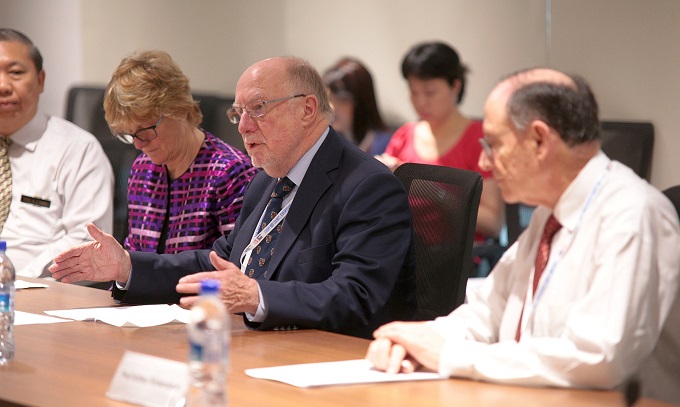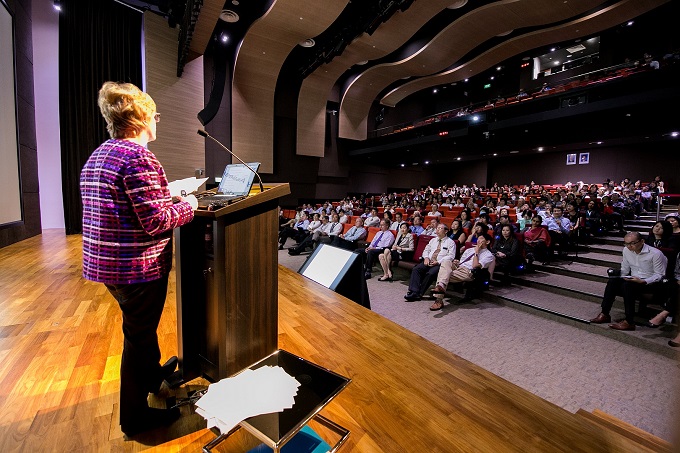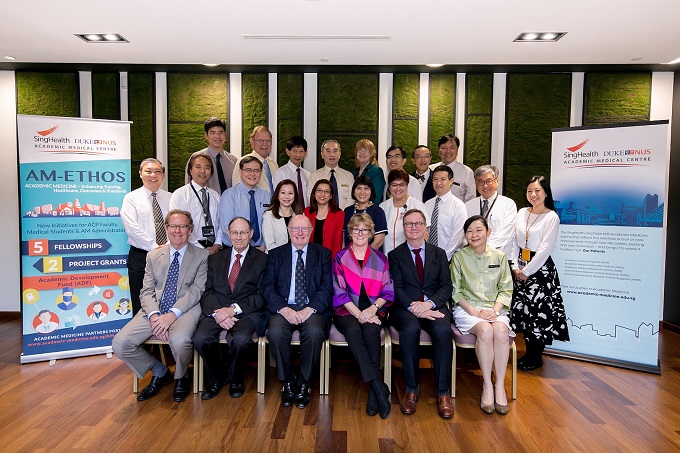It has been more than ten years since SingHealth and Duke-NUS embarked on our journey as partners in academic medicine to improve the lives of our patients.
It has been more than ten years since SingHealth and Duke-NUS embarked on our journey as partners in academic medicine to improve the lives of our patients.
The roadmap began with the establishment of Academic Clinical Programmes (ACPs) in 2011, went on to include jointly managed institutes of research and education, and to the introduction of the SingHealth Duke-NUS Disease Centres (SDDC).
Throughout this progress, a panel of esteemed academic clinicians has been kept in close consult, giving their time every two years to visit our Academic Medical Centre (AMC) in order to review and recommend the way forward.
At the end of their last visit, Chairman Professor Sir Keith Peters called for us to strengthen collaborations between institutions, citing the Radiological Sciences and Pathology ACPs as powerful, cross-cutting programmes that can reap enormous benefits across the board. He also recommended the nurturing of clinician scientists to boost scientific discovery that may lead to breakthroughs in clinical care.

AMAC Chairman, Prof Sir Keith Peters
With the last two years of our AMC characterised by rapid progression and fervent change, the AMAC had a lot to look forward to when they arrived for the 3rd Biennial AMAC meeting, 4-6 April 2016.
Over their three-day visit, the AMAC were presented with the progress of our AMC and its structures, and had the chance to engage in deep discussions with the various stakeholders. AMAC will be providing their final recommendations in due course.
Presenting their findings, Sir Keith Peters commended us on our progress and follow through on the recommendations during the AMAC meeting in 2014, “It’s really quite remarkable how much has been done over the two years,”
With senior management and key appointment holders in ACPs, SDDCs, research and education in attendance, Sir Keith Peters encouraged us to keep up the progress.
Another noteworthy point raised this year was the need to pursue a complementary system that allows each individual institute or programme to grow their areas of strength, instead of expecting everyone to be good at everything.
Dame Sally Davis provides an analogy, “You are now like European soup – rich in ingredients and taste, but also murky and thick. What you need now is the transparency of clear Chinese soup.”
“You need to share more – core platforms, administrative settings and policies, transparency in making things happen.”

Prof Dame Sally Davies sharing insights on research excellence at Academic Hour, 5 April 2016
The council also had suggestions about reviewing the Duke-NUS curriculum, stating that the research-focus agenda could also be expanded to embrace fields outside of medicine such as sociology, bio-chemistry, engineering and other professional disciplines.
“There is hardly any area of scholarship that is irrelevant to the medical sciences. Exploring the various areas will result in students being distinctively different. They will be a very powerful minority,” advised Sir Keith Peters.
Rounding up was Professor Arthur Rubenstein with a comment on the people in our AMC.
“I don’t know any other place in the world that can be proud of so many accomplishments in such speed, but there are also aspects of medicine that require patience and belief.”
Citing the example of Professor Carl June, whose groundbreaking research in leukemia treatment using t cells took more than fifteen years to see results, he encouraged healthcare professionals not to be discouraged in the short term.
To provide additional insights beyond the review sessions with ACP key appointment holders, the AMAC also shared on a variety of topics at Academic Hour sessions, open to all SingHealth and Duke-NUS staff.
With their next visit scheduled for 2018, the AMAC certainly feels that there will be much more accomplishments to come from the SingHealth Duke-NUS AMC.

The Academic Medicine Advisory Council (front row, between Duke-NUS Dean Prof Thomas Coffman and SingHealth Group CEO Prof Ivy Ng) with SingHealth Duke-NUS Academic Medical Centre key leaders.
The AMAC are: (L-R) Prof Arthur Rubenstein, Prof Sir Keith Peters (Chairman), Prof Dame Sally Davies, Prof Sam Hawgood, Prof the Lord Darzi of Denham (not in photo)
